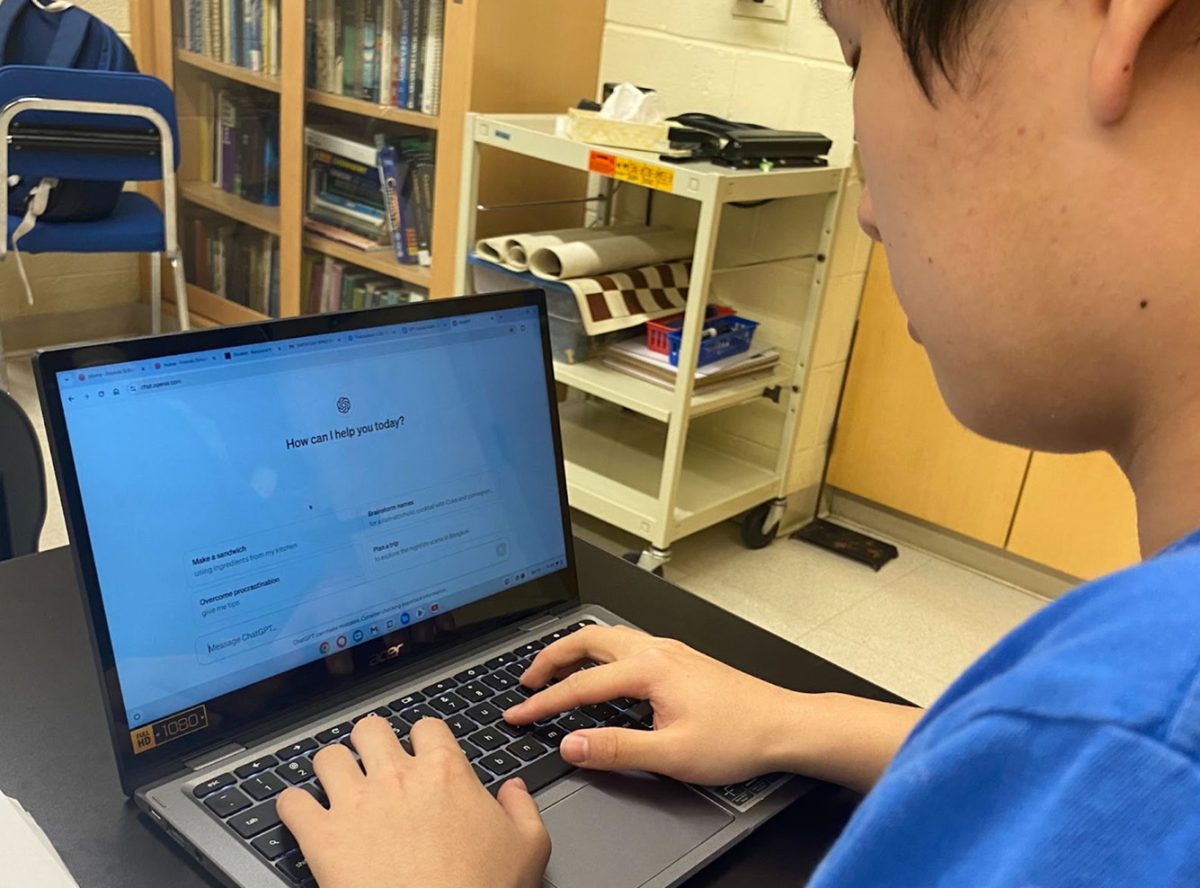Understanding the Struggle of Test Anxiety
“Sometimes my heart begins to pump super fast and I feel like I can’t breathe. I seem to work myself up into almost a panic attack. Other times I would begin to blank on everything.” – Arielle Ennis, ’20
February 10, 2020
Students these days are increasingly suffering from test anxiety due to the immense pressure put on them by their school, parents, or even themselves. Test anxiety can be characterized as a type of performance anxiety. Kidshealth.org states that test anxiety is “a feeling someone might have in a situation where performance really counts or when the pressure is on to do well.”
Taking tests is a part of going to school but the environment that schools have created for testing does not work for some people. Senior Arielle Ennis is one of those people.
“Test anxiety affects me a lot. It’s very frustrating when you do everything you need to do and study but it’s not shown on your test,” Arielle says.
She adds that at times, her anxiety can be a huge burden because it can begin to affect her grades and GPA.
“It is a big problem for me in classes where I know tests truly matter,” she says. “When the majority of your grade is decided based on how well you do on tests, then the pressure to do well is high.”
Test anxiety affects everyone differently and for some it can be more intense than for others. For Arielle, when she is placed in a testing environment, her anxiety can take different forms.
“Sometimes my heart begins to pump super fast and I feel like I can’t breathe. I seem to work myself up into almost a panic attack. Other times I would begin to blank on everything,” she says. “I find that if the first question on the test stumps me, I get nervous for the rest of the test and begin to overly stress myself out.”
Math teacher Will Marbury says test anxiety used to affect him in a different way.
“In high school, I was fine when taking tests, but this changed when I went to college. When I was at Maryland, I had difficulty taking math tests. I would get vertigo and felt like I was stuck in a hamster wheel,” he says. “I developed this anxiety because I cared so much about doing well so that I could graduate.”
There are many ways to combat this anxiety.
“I was eventually able to calm myself and learn how to deal with it,” says Mr. Marbury. “Although, I was much older, and I think that it is different for students today.”
Arielle’s teachers have played an important role in helping her to deal with her test anxiety. Some of her teachers would sit down with her before tests and go over the material to help build her confidence, while others allowed her to be placed in small environments while taking tests so she didn’t have to face the pressures of others.
“In middle school I was a star student and everything came naturally to me. Although, when I came to Friends, the pressure was on. I felt like if I didn’t do well on a test then I wouldn’t do well in school, get into college or get a good job.”
When Arielle began to have anxiety, she felt like she didn’t know what was going on. As she entered the 10th grade, her teachers began to work with her to figure out ways to accommodate her anxiety.
She realized that if she didn’t have time for her mind to wander, then she wouldn’t stress out and would be more focused on the test.
Each person who suffers from test anxiety has their own unique way to try and combat it. Mr. Marbury says he is confident that students suffering from anxiety will be able to find ways to combat it – just like he did.
“It’s important to have techniques while taking tests as well as coping mechanisms to help build your self-esteem as well as have an understanding of what is going on in order to calm yourself down. Meditation and positive reinforcement can be beneficial, but it’s important to say it out loud and not just think it,” Marbury says.
He continues by saying, “Anxiety is based on a deep found desire inside you; such as the want to do well on a test. For students who have faced difficulties in the past, it can lead them to face insecurities while taking tests and these insecurities feed into the anxiety.”
As a teacher, Marbury says it can be hard to see students struggle in a testing environment. He sees the pressures that students face nowadays and how it affects them on tests. He wants to help his students and works with them before tests to help lessen their stressors and anxiety. He acknowledges thought that testing is a part of school, and says he thinks that, although they can be important, tests shouldn’t have so much power.
The experiences of Arielle and Mr. Marbury bring up some important points about test anxiety as well as ideas on how to get rid of it. Testing has been a part of education since the very beginning, and it is unrealistic to expect that students should no longer have to take tests.
But, it is not unrealistic to change the pressure that testing has in schools. If schools worked to change the environment as well as the importance of testing, it would greatly help students who are affected by test anxiety. Having tests make up the majority of someone’s grade is unfair, especially if they are suffering from test anxiety.
Schools should take a holistic approach to grading and consider multiple aspects before giving a student a grade. It is also important that schools recognize that a grade/test score does not define a student. By taking away the pressures that testing creates, schools could help to lessen the number of students with test anxiety.














![How Freestyle Club Began [Podcast]](https://thequakerquill.org/wp-content/uploads/2025/05/charly-alvarez-Jv9untmB7G4-unsplash-1200x800.jpg)








![What makes you feel good about yourself? [Podcast]](https://thequakerquill.org/wp-content/uploads/2025/10/madison-oren-uGP_6CAD-14-unsplash-1200x800.jpg)




![A Phone Ban at Friends? [Podcast]](https://thequakerquill.org/wp-content/uploads/2025/05/magenta-VrRT19_ZjUY-unsplash-1200x900.jpg)



















